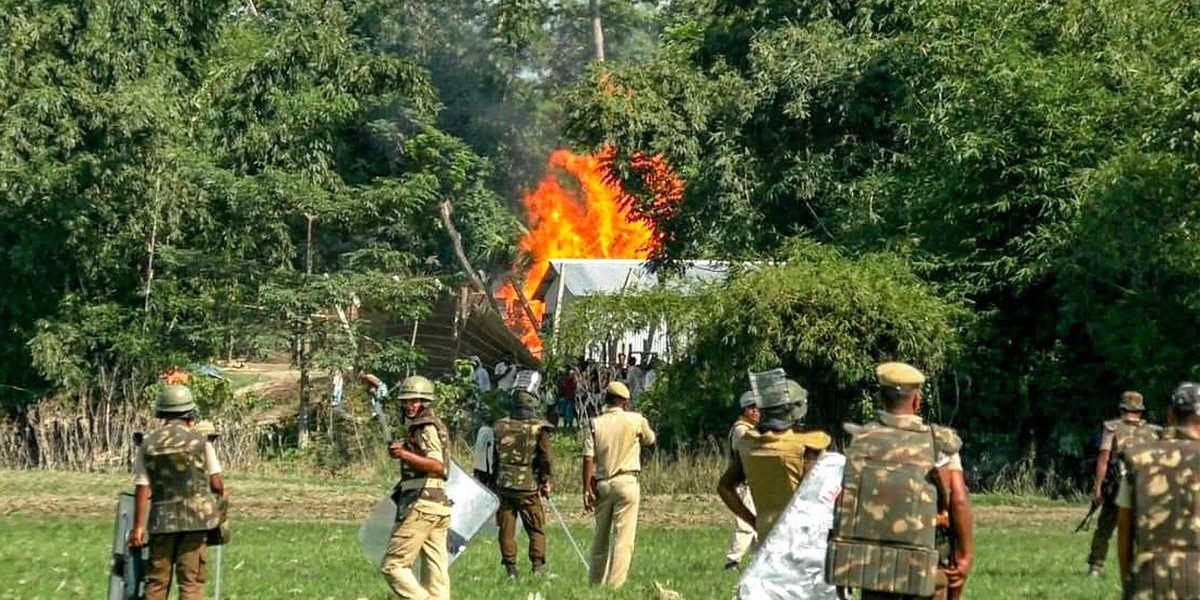Panellists at Congressional briefing on Assam urge US government to designate India as 'Country of Particular Concern'

The briefing was co-sponsored by a group of 17 human rights and interfaith organizations, including the Indian American Muslim Council (IAMC), Amnesty International USA and Hindus for Human Rights.
TCN News
WASHINGTON, D.C. – In a Congressional Briefing on Thursday, leading Indian American human rights defenders condemned the Indian government drive to forcibly remove hundreds of thousands of Muslims from their homes in the Indian state of Assam, calling the move a brazen attempt at turning millions of Indian Muslims into non-citizens.
The briefing was co-sponsored by a group of 17 human rights and interfaith organizations, including the Indian American Muslim Council (IAMC), Amnesty International USA and Hindus for Human Rights.
In the wake of this targeted anti-Muslim discrimination, the speakers of the briefing demanded that the United States designate India as 'a Country of Particular Concern or CPC'. According to the US Department of State’s Office of International Religious Freedom, a CPC is a nation that is “engaged in or [tolerates] particularly severe violations of religious freedom,” including “flagrant denial of the right to life, liberty, or the security of persons.” India has been recommended by the U.S. Commission on International Religious Freedom (USCIRF) to be placed on the CPC list for two years in a row.
Aman Wadud, the Fulbright Scholar at UT Law and defence lawyer for multiple NRC victims, spoke on the fear of mass statelessness that is growing among Muslims in the region.
“This re-verification is not because of any demand for excluding illegal migrants that have crept in. It is a political demand,” said Wadud, who in 2020 testified before the USCIRF on India’s alarming rates of anti-Muslim discrimination. If this process of asking India’s citizens to prove their citizenship [begins] again, [all] people will live in fear. [All] people’s dignity will be stripped.”
Siddhartha Deb, journalist and author, pointed out the discriminatory nature of the eviction drives. “With or without the NRC, or with endless NRCs going on, Bengali Muslims in Assam are targets,” he said. “The US government needs to make it very clear to Modi that this kind of targeting of Muslims in Assam, around the country, is not acceptable. I think there is a very good reason to declare India a Country of Particular Concern.”
“In recent years, the BJP's aggressive CAA-NRC politics has exacerbated the divisions stemming out of the common belief that ‘indigenous’ Assamese are losing their land to ‘illegal Bangladeshi migrants’ and has overlaid a unique Hindutva agenda on top of them,” said Nadim Khan, co-founder of the United Against Hate campaign and secretary of the Association for Protection of Civil Rights in India. “The BJP has been exploiting the ethnic and religious fault lines in Assam for electoral gains, and running a hate campaign against Muslims, who account for one-third of the state’s population.”
Even Hindus who find themselves left off the registry face difficulties. Under the anti-Muslim Citizenship Amendment Act, Bengali-speaking Hindus do have the option to reapply for citizenship. However, even if they have been living in Assam for generations, the rules of the CAA force them to claim that they are Bengali refugees and not Indians by birth.
Deb who has written on the Assam evictions for the New York Times emphasized that the discrimination does not stem from a vacuum. “In India, when we say Muslims are under attack, we also need to be saying that democracy is under attack, freedom is under attack. It all goes together.”
